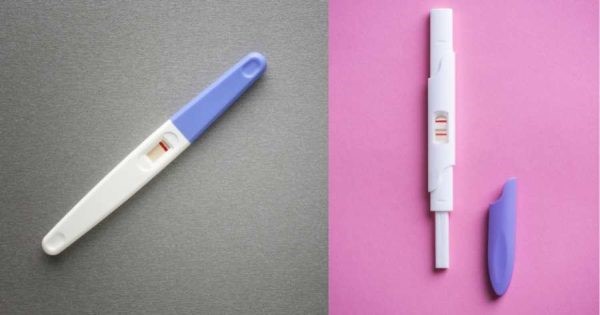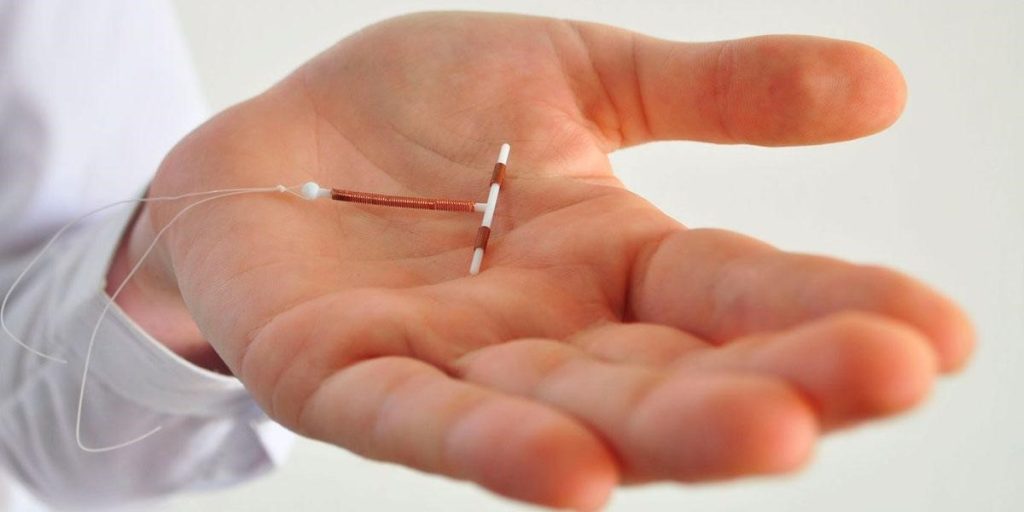Signs That Plan B Didn’t Work – What to Watch For?

There are situations when contraception doesn’t work out as expected. Sometimes traditional birth control methods are ineffective, then emergency contraception is used to prevent undesired pregnancies. The “morning-after pill” or Plan B is one of these. However, just like any medicine, it is not perfect. It might not always go as planned. So what are the signs if plan b didn’t work?
Well, initially the early signs that make you think that the pill didn’t work are feeling dizzy, irregular menstrual bleeding, headache.
The signs that the pill failed will be covered in detail in this article. Additionally, we are looking into the negative effects of Plan B, its levels of efficacy, and the circumstances under which and reasons why it will not achieve the desired outcome. Keep reading.

Source: The Texas Tribune
The Effectiveness of Plan B
Plan B is designed to prevent pregnancy when taken as soon as possible after unprotected intercourse. However, contraceptive failure happens sometimes. It initially works by delaying or inhibiting ovulation. Let’s talk about that in brief.
Effectiveness of Plan B Within the Recommended Timeframe
Taking Plan B during ovulation is highly effective at reducing the risk of pregnancy. Even taking it 2 days before ovulation also worked. However, the success of this depends on how accurately you can identify your ovulation. It also depends on when in your menstrual cycle you are.
Levonorgestrel is the ingredient in the contraceptive pill that is active. It is a synthetic hormone. It prevents or delays ovulation. When an egg comes out from the ovary, it is called ovulation. If ovulation starts, it is difficult for the pill to stop sperm from reaching and fertilize an egg.
Time period for taking Plan B after unprotected intercourse
Take it as soon as possible after unprotected intercourse. This way the pill becomes as effective as possible. Take the medicine within 72 hours of unprotected intercourse. Do it according to the manufacturer’s instructions. But as time goes on, its efficacy diminishes. So intake as soon as possible,to get the best result.
In recent years, emergency contraception has offered more advanced options. Some options are even effective up to 120 hours after unprotected intercourse. One of these options is Plan B One-Step. The sooner you take it within the recommended time, the more it is to be effective in preventing pregnancy.

Source: missouriindependent.com
Factors that can affect the efficacy of the medication
Several factors can influence the effectiveness of Plan B:
Timing: As mentioned, the sooner you take it after unprotected intercourse, the more effective it is. Delaying reduces its efficacy.
Weight: Plan B’s effectiveness is reduced in women with a higher body mass index (BMI). Some studies suggest that it is less effective with a BMI over 30.
Ovulation Timing: If you have already ovulated before taking Plan B, its effectiveness decreases. Because it works by delaying or preventing ovulation. If fertilization has already occurred, it becomes less effective to prevent pregnancy.
Number of Interactions: Multiple unprotected intercourse after taking Plan B could affect its efficacy. It is meant to be used as a one-time emergency contraceptive.
Certain Medications and Conditions: Some medical problems and medications make it less effective. In these specific situations, it is advisable to speak with a specialist.
Individual Variation: Each person’s body responds differently to medications, so responses vary.
Symptoms That Plan B Didn’t Work
One of the most critical things of understanding whether Plan B worked or not is recognizing the symptoms. So, there are the signs that if it has not Worked.
Although Plan B is a useful emergency contraceptive, there are several situations where it will not function as intended. We will look at signs that it is ineffective in this section.
Delayed menstruation
A missed or over-delayed period is often the most noticeable sign that Plan B didn’t work. It sometimes disrupts the regular menstrual cycle. But if your period is more than a week late, it’s advisable to consider the possibility of pregnancy.
Menstrual irregularities have various causes. As an example we can say, stress, hormonal imbalances, and underlying medical conditions. However, when you’ve taken Plan B and experience a delay in your period that initially means the pill will not work.
Unusual spotting
Spotting or bleeding that is different from your usual menstrual flow is also a fact to consider.. Plan B sometimes causes changes in bleeding patterns. But persistent or unusual bleeding should be evaluated.
Unusual bleeding is attributed to a variety of factors. The hormonal fluctuations, cervical issues, or, in rare cases, underlying health conditions can be examples. It is important to consult a health specialist if you experience persistent or unusual bleeding after taking Plan B.
Continued pregnancy symptoms
Early pregnancy symptoms include breast tenderness, nausea, vomiting, fatigue, and increased urination. These symptoms become noticeable a few weeks after conception.
Following the use of Plan B, if you still have pregnancy-related symptoms, it indicates that the medicine was ineffective in preventing conception. Even though these symptoms have other reasons, you should always take pregnancy into consideration if you experience them.
No withdrawal bleeding
Plan B leads to less bleeding. Which is a temporary light bleeding that occurs after taking the medication. It is similar to a period and indicates that the pill is working as intended.
After using Plan B, sometimes you don’t notice a little bleeding. it means the medication didn’t perform as well as it should have. It’s vital to keep in mind that the lack of bleeding does not necessarily indicate pregnancy.
Home pregnancy test results
You can confirm pregnancy at home with a pregnancy test. A pregnancy test used 10 to 14 days afterwards for unprotected sexual activity. You can do that also when your period is late.
The accuracy of a home pregnancy test depends on the timing of the test. It is most reliable when taken after the expected start date of your period. However, some tests detect pregnancy earlier. You should follow the instructions on the test. Consult a doctor if you are not sure about the test results.

Source: pregnurse.com
What to Do If You Suspect Plan B Didn’t Work?
If you suspect that Plan B didn’t work, take action. Here are some steps as follows:
Consult a doctor: Reach out to a health specialist for guidance. They assess your situation and recommend the appropriate next steps.
Consider an Alternative Emergency Contraceptive: Your doctor recommends an alternative emergency contraception method based on your circumstances and how long it has been since unprotected sexual activity.
Pregnancy Test: If you suspect Plan B didn’t work and your period is delayed or you experience pregnancy symptoms, take a pregnancy test. This will provide valuable information.
Seek emotional support: Dealing with the uncertainty of contraception is emotionally challenging. Don’t hesitate to share with friends, family, or a counselor if needed.
Always act fast while using emergency contraception because time is of fundamental worth.
Alternative Methods of Emergency Contraception
Certainly, here’s an introduction to an additional method of emergency contraception:
Copper IUD (Intrauterine Device)
For your convenience, here is a brief explanation about Copper Iud. Hope this will help you to have a clear idea.
Effectiveness: Copper IUDs are effective forms of emergency contraception. These are the most effective when used within five days of unprotected intercourse. They are over 99% effective in preventing pregnancy.
How they work: The copper IUD is a small, T-shaped device. The doctor inserts it into the uterus. It works by preventing fertilization of the egg by sperm. It creates a hostile environment for sperm. In addition, makes the process difficult for them to survive and reach the egg. Moreover, it affects the lining of the uterus, preventing the implantation of a fertilized egg.
Long-term contraception: The copper IUDs’ ability to give long-term contraception is one of its benefits. It lasts for up to ten years. So it can be used for both continuing birth control and emergency contraception.
Safety and side effects: While generally safe, copper IUDs have side effects. Such as increased menstrual bleeding and cramps. They are not appropriate for all people.
An effective technique of emergency contraception is a copper IUD. If you are qualified, use it. To determine your eligibility, consult with a doctor.

Source: shfpact.org.au
Prevention and Safe intercourse Practices
Absolutely, promoting prevention and safe intercourse practices is important. Here’s how you can define it:
Regular use of birth control methods:
- Explore and use reliable, regular birth control methods. Ex. oral contraceptives, intrauterine devices, hormonal injections, or implants.
- Correctly choose birth control methods to minimize the need for emergency contraception. Also, consistency is important.
Safe intercourse practices:
- Use condoms to reduce the risk of both unintended pregnancies and sexually transmitted infections.
- normalize communication with intercourseual partners about contraception and STI prevention.
By promoting regular use of birth control and encouraging safe intercourse practices, we can significantly reduce the need for emergency contraception. And promote overall intercourseual health and well-being.
What Should I Avoid After Taking Plan B?
After taking Plan B, it’s advisable to avoid certain activities and substances to ensure the medication’s effectiveness:
- Use a reliable form of contraception after taking Plan B to prevent further risk of pregnancy.
- Alcohol, weed and smoking affect its effectiveness. So it’s best to avoid these activities.
- Certain medications like liver enzyme inducing medicines, interact with Plan B. That reduces its effectiveness. If you are taking any other medications to ensure there are no interactions.

What Would Be The Obvious Signs of Being Pregnant if a Plan B Contraceptive Pill Didn’t Work?
If Plan B didn’t work and you became pregnant, there are several signs of pregnancy to be aware of. These are as follows:
- One of the most evident indications of pregnancy is a missed menstruation.
- Early pregnancy causes breast pain, soreness, and enlargement also abdominal cramping.
- Early on in pregnancy, many women feel nausea, which is frequently followed by vomiting.
- Increasing the urges to urinate is a common early pregnancy symptom.
- Pregnancy can lead to heightened fatigue, making you feel unusually tired.
- Changes in your food preferences can be
How Long Do Plan B Side Effects Last?
Nausea, fatigue, and vomiting are common adverse effects. Headaches, breast sensitivity, stomachaches, and irregular menstrual bleeding are some common complaints. A few days pass before these adverse effects disappear. The majority of patients typically recover within 24 to 48 hours. However, some people have certain adverse effects for a few days longer..
How Long Does Plan B Delay Ovulation?
Plan B prevents or delays ovulation. It functions by giving out a large dosage of levonorgestrel. It is a progestin hormone that prevents or postpones an egg’s release from the ovary. A fertilised egg’s ability to implant in the uterus is made more challenging, however, the exact method is unknown. However, if implantation has already taken place, it is ineffective.
Plan B Success Rate During Ovulation
You may ask, does Plan B work during ovulation? Ovulation generally occurs in the middle of the menstrual cycle. Therefore, if a woman has unprotected sex during her fertile period, Plan B becomes less reliable in preventing pregnancy.
The success rate of Plan B during ovulation depends on several factors. For instance, how soon after unprotected intercourse you take it and the timing of your ovulation. The pill is more effective the sooner it is taken after unprotected intercourse. Taken within three days of unprotected sexual activity, it lowers the risk of pregnancy by roughly 89%.
Plan B Side Effects
Before we dive into the signs that Plan B didn’t work, it’s essential to understand the potential side effects of this emergency contraceptive.It contains levonorgestrel, a synthetic hormone that can cause various short-term side effects. These side effects may include:
- Nausea
- Vomiting
- Fatigue
- Headaches
- Breast tenderness
- IIrregular menstrual bleeding
- Motion sickness
- Raised body temperature
- Sensitivity to smell
- Taste changes
- Tender, swollen, tingling, or aching breasts
- Tiredness
- Weight gain.
Most women who take Plan B will experience at least one of these side effects.
Frequently Asked Questions (FAQs)
Can I take Plan B while I am ovulating?
Plan B is most effective if taken as soon as possible after unprotected intercourse. It works during or around ovulation but is generally most effective before ovulation occurs. If you’re already ovulating, the pill fails to prevent pregnancy. It’s still recommended to take it as a backup option, but the effectiveness will be reduced.
Does Plan B always work?
Plan B is not 100% effective, but it reduces the risk of pregnancy when taken as directed within 72 hours (or up to 120 hours) after unprotected intercourse. The effectiveness depends on factors when it’s taken in relation to ovulation and individual differences.
Can Plan B make your period late?
Yes, taking Plan B can affect your menstrual cycle. It makes your next period come earlier or later than expected. It’s common for menstrual irregularities to occur after taking the pill. However, if your period is more than a week late or if you experience other unusual symptoms, it’s a good idea to take a pregnancy test. And consult a doctor for proper guidance.
How do you know if Plan B was successful?
The only way to determine if Plan B was successful is through a pregnancy test. If your period is delayed or unusual, take a pregnancy test. This will provide the most accurate answer regarding the success of the pill.
Conclusion
In conclusion, now you know the signs that Plan B didn’t work. It is a vital tool for preventing unintended pregnancies. But it is not capable. There are instances where it will not perform as planned. Additionally, it’s necessary to be alert to any warning signals of failure. Anyone considering or using Plan B must be aware of its side effects, how timing affects its effectiveness, and its long-term effects.





